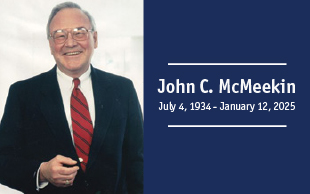Forty years after President Richard Nixon declared a “war on drugs” the White House released a national drug policy that aims to fight a disease, not a war, by treating illegal drug use as a public health issue and investing more resources into prevention and treatment.
The new drug control strategy, released in May, promotes community-based anti-drug programs, encourages healthcare providers to screen for drug problems before patients become dependent, and expands treatment beyond specialty centers to mainstream healthcare facilities.
In April, A. Thomas McLellan, then deputy director of the Office of National Drug Control Policy (ONDCP), spoke at PHMC to outline the priorities and share the latest developments in federal drug control policies and their implications for addiction treatment in public health, behavioral health and primary care. PHMC presented the program “Highlighting the Federal Agenda for Drug Control Policy” in recognition of National Public Health Week. “Given the release of the first-ever National Drug Control Strategy, Dr. McLellan’s visit to PHMC was very timely and appropriate for those of us committed to addressing the addiction needs of Philadelphia and the region,” says PHMC president and CEO Richard Cohen, PhD, FACHE. “Having a national drug policy that recognizes drug abuse and addiction as complex public health issues, not just criminal justice issues, is critical to our mission and extremely advantageous to the work we do.”
Healthcare reform will do for substance use disorders what Brown vs. the Board of Education did for school desegregation.”
McLellan, who stepped down from ONDCP this summer, has been a major voice for identifying and treating addiction as a chronic illness. Among the nation's leading researchers on addiction, he has more than 30 years of experience in addiction treatment research.
“Healthcare reform will do for substance use disorders what Brown vs. the Board of Education did for school desegregation,” McLellan told lecture attendees, referring to the historic segregation of addiction treatment from the rest of health care. The healthcare reform bill will integrate addiction treatment into primary care settings, making substance use treatment more accessible. In addition, it requires all healthcare plans to cover substance use disorders, address prevention and promote workforce development, essential factors in substance use disorder services and overall health care.
The new drug strategy encourages healthcare professionals to solicit information about patient drug use even during routine treatment so that early intervention is possible. “Putting treatment into the primary healthcare setting is critical,” says Elaine Fox, vice president of Specialized Health Services at PHMC. “Our Federally Qualified Health Centers specialize in providing supportive services not traditionally offered in primary care settings, such as mental health and substance treatment counseling.”
Arthur C. Evans Jr., PhD, director of the Philadelphia Department of Behavioral Health and Mental Retardation Services and also a speaker at the April event, agrees. “Addiction is a chronic condition, but the current system is set up to treat it on an acute basis,” he noted. Evans discussed a paradigm shift in the delivery of addiction services in Philadelphia, which he said aligns with the direction of the new drug policy and is based on a recovery-oriented system of care with emphasis on early intervention and sustainability after leaving treatment. Like McLellan, Evans noted that addiction should be monitored continually and managed much like other chronically relapsing medical conditions such as asthma, diabetes and hypertension.
“The integration of substance abuse treatment into primary care centers represents a critical paradigm shift that will help decrease the stigma associated with seeking help for addiction while also increasing access to care for thousands of consumers who wouldn’t otherwise receive it,” says Leslie Hurtig, MPA, vice president for Behavioral Health Services at PHMC and a co-speaker at the event with Lynne Kotranski, vice president of PHMC’s Research and Evaluation Group. Research shows that individuals receiving care in specialty behavioral health programs represent a small minority of those who need it, and that half of all mental health care in the United States is delivered by medical practitioners.
“Providing behavioral health treatment in healthcare centers, as we do here at PHMC, allows us to greatly expand the availability of these services in settings where patients already feel a sense of trust and safety, and often have long-standing relationships with their primary care providers,” says Fox.
According to Hurtig, “Providing good behavioral care is essential to providing good primary care. In fact, integrating behavioral health and primary care makes so much sense that I wonder why we haven’t been doing this forever!”





